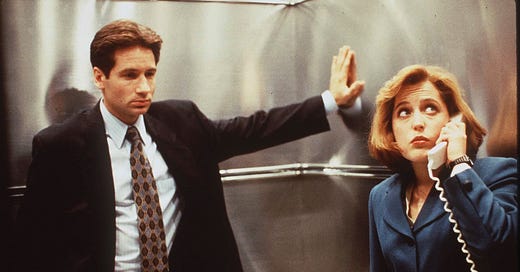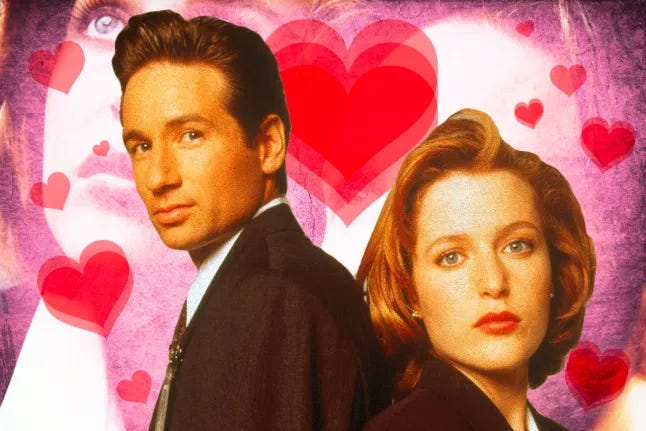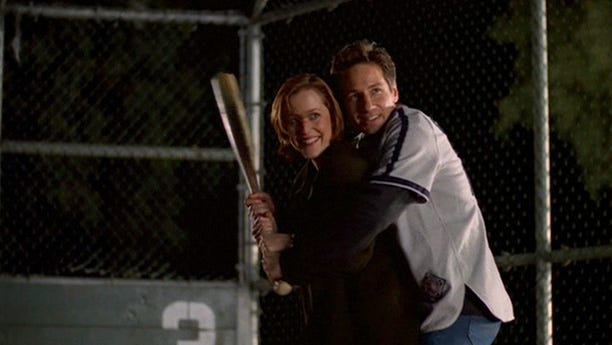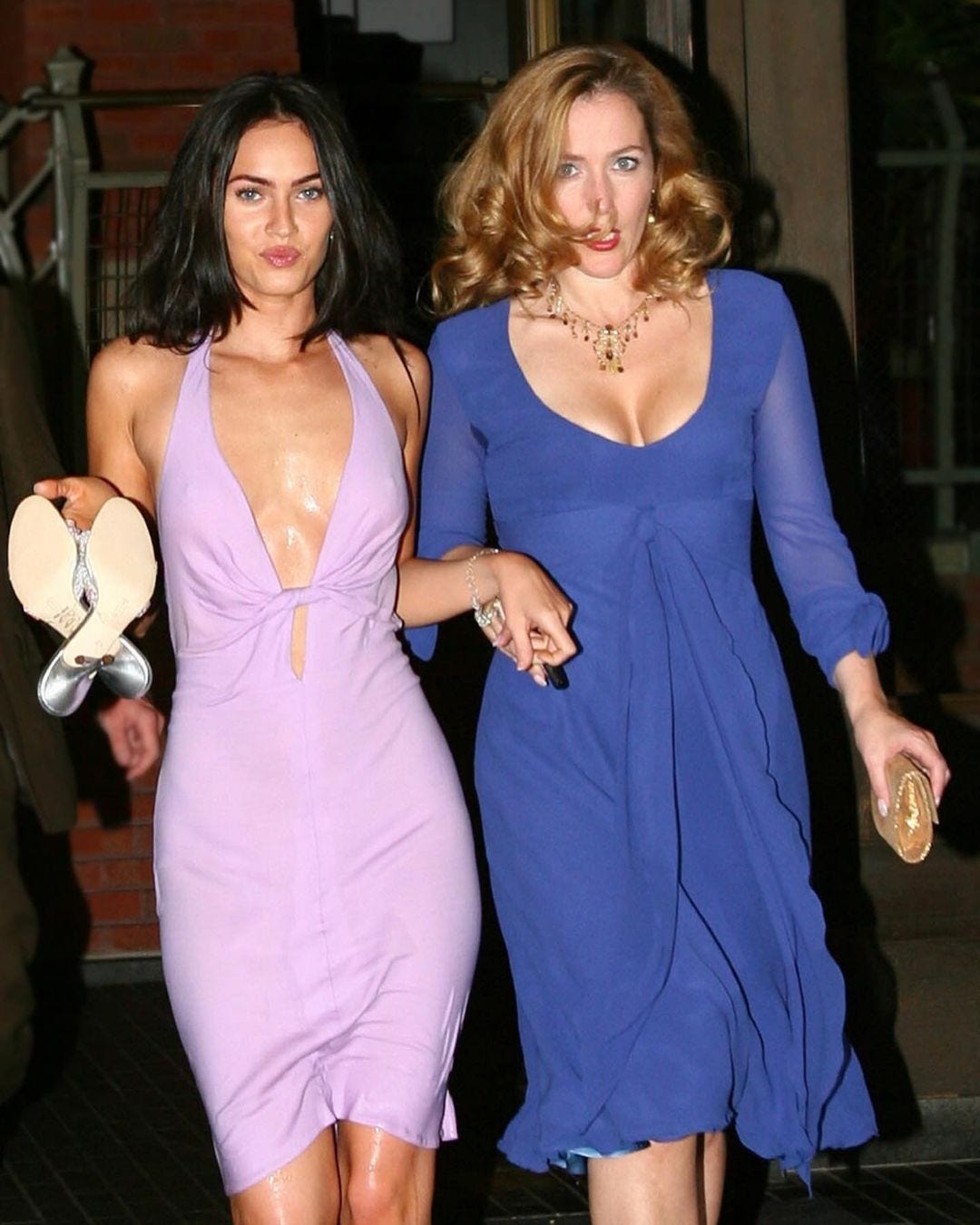This is the Sunday Edition of Paging Dr. Lesbian. Plus, stay tuned for this week’s dispatch from the lesbian internet. If you like this type of thing, subscribe!
There was a certain point in my TV-watching history where fictional heterosexuals really lost their luster for me. Most likely it was around the time I discovered shows like The L Word and couples like Callie and Arizona (“Calzona” for those in-the-know) from Grey’s Anatomy. Prior to this point, I was very invested in couples such as Nathan and Haley on One Tree Hill or whatever dysfunctional relationship was occurring on Gossip Girl. But at a certain stage – say, when I discovered fictional sapphics – these heterosexual characters stopped being the center of my entertainment universe.
Obviously, this does not mean I don’t care about real-life straight people. I know plenty of exceptional heterosexuals in my own life – namely, friends and family who are not only excellent people but also put up with my soliloquies about the aesthetic and cultural importance of Carol (2015) and my favorite Gaylor Swift theories. But, let's face it, on television – there are so many mediocre heterosexuals. There are men who desperately need to go to therapy, and women who for some reason date these men to their own detriment. On occasion, these characters do succeed in pulling me into their orbit. I’m actually a big fan of Netflix’s violent macho series The Punisher, at least in part because I think it’s an interesting depiction of unchecked masculine rage and unaddressed trauma. (Unfortunately, my enjoyment of this show also puts me in the same camp as Eminem and like, dudes with very large trucks who love guns).
But now I’m getting off track. What I’m trying to get at here is that I’m not particularly invested in the majority of heterosexual characters or heterosexual relationships on television, but there are some notable exceptions. These exceptions fall into a category that I am calling exceptional heterosexuals. For me, most of these characters are found on procedural-like series, where workplace stressors heighten the interpersonal drama. (I could write a whole other piece about what it means to love shows about FBI agents or cops, but others have already done so more eloquently than I could).
For me, the god-tier examples of this category are Mulder and Scully from The X-Files and Peter and Olivia from Fringe. Fringe, if you didn’t know, is actually fairly similar to The X-Files and focuses on a secret division within the FBI where they investigate unexplainable occurrences (the title comes from the term “fringe science”). More recently, I would include David and Kristin from the CBS series Evil, whose sizzling chemistry and disagreements about matters of science and spirituality are the lifeblood of the show.
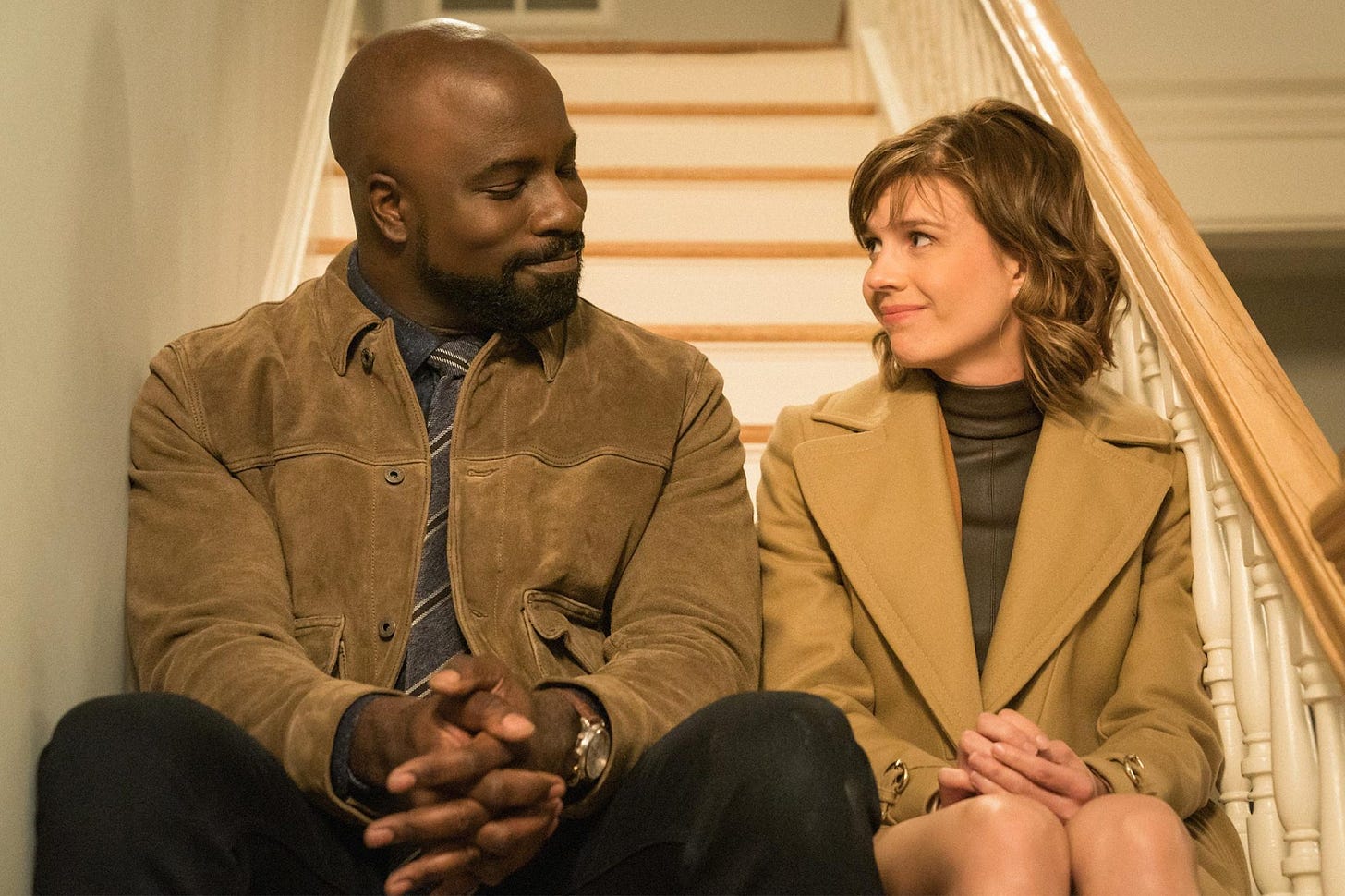
Let me explain further. By exceptional heterosexuals I don’t mean characters that are unproblematically wonderful people who are great at expressing their emotions (in fact, a lot of my personal favorites are definitively not good at this). My definition of exceptional in this instance has more to do with the depth of their angst and the magnitude of their longing. This longing is what makes these relationships so compelling, and so epic, if you will. (It took Mulder and Scully nearly 10 seasons to get together, and did they ever really even get together?)
Notably, while these characters often experience great angst (sometimes brought on by one another), the relationships that I am referring to are also characterized by deep care and affection, even if this affection is not always shown through words. While the relationships that these characters find themselves in may at times be slightly dysfunctional, they are never toxic, never abusive. That quality of care is always present.
Not coincidentally, these characteristics are also frequently found in queer love stories, wherein the obstacles to a successful romance have more real-life parallels (cultural or legal barriers, internalized homophobia, etc.) than they do in these straight love stories (aliens, time travel, etc.). You don’t need to create outlandish reasons why a queer couple can’t be together in a story, because homophobia actually exists in real life. (Though I am waiting for a show where lesbians hang out with aliens and time travel. Dax from Deep Space Nine – I see you). Regardless, unspoken longing is probably one of the only qualities that characterizes nearly all queer love stories. What these procedurals understand, it seems, is that that which cannot be said is often the most poignant proclamation of all.
Perhaps these qualities are why The X-Files, and to a lesser extent Fringe, have an unexpectedly large queer following. (Though to be fair, I personally started watching Fringe because sapphics on my Twitter feed have been obsessing over its star Anna Torv since she first starred as a lesbian in Mindhunter several years ago, which has subsequently created a renewed interest in Fringe). Since it premiered in the early 1990s, The X-Files has always had a huge and passionate online fandom, and this fandom has always had a legion of queer fans among them. There is also a contingent of people that think Mulder is a lesbian and Scully is bisexual (hello Agent Reyes), but that is another story for another day. Relatedly, The X-Files continues to have a large lesbian following, in large part due to lesbian icon Gillian Anderson. Admittedly, they are also both very attractive, particularly in the first few seasons (sorry David Duchovny) – Mulder with his boyish charm and Scully with her big, sexy brain – so such a passionate fandom of all genders is not surprising.
The initial reason I finally started writing this piece was because I got to the end of Fringe and felt, very briefly, that my life was over. This, I think, is the sign of a good TV show (I felt similarly when I finished The West Wing, a show whose characters could also be categorized as exceptional heterosexuals), or perhaps also simply a sign of my diminished ability to accept change during the pandemic. Regardless, something about the beautiful, soul-crushing angst of Peter and Olivia really captured me and refused to let me go. But once more, while the circumstances of their inability to get together grew increasingly outlandish (but no less heartbreaking), a deep well of affection and care remained between the two characters. The fact that I was rooting for these characters to settle down and have kids together (something I rarely want to see happen on any TV series – it’s boring TV!) is a testament to how wonderfully empathetic they are as a couple.
Perhaps these characters are also so easy to love because of how many other terrible things heterosexual culture has given us. Unfortunately, so many modern-day heterosexual norms are toxic. Power imbalances and issues of consent are so baked into heterosexual dating culture that it is easy to see why so many women have had terrible or even abusive relationships with romantic partners. This is not to say that queer relationships are completely bereft of toxicity either – internalized homophobia and shame can manifest themselves in ways that can harm others if not directly addressed. Nor does this mean that queer or lesbian relationships on screen are less likely to be toxic either – fan favorites Piper and Alex from Orange Is the New Black are consistently terrible to one another, and literally every character on The L Word is a cheater. Rather, what I think these exceptional heterosexuals illustrate is an example of straight angst that is not deprived of care and respect, but rather defined by it.
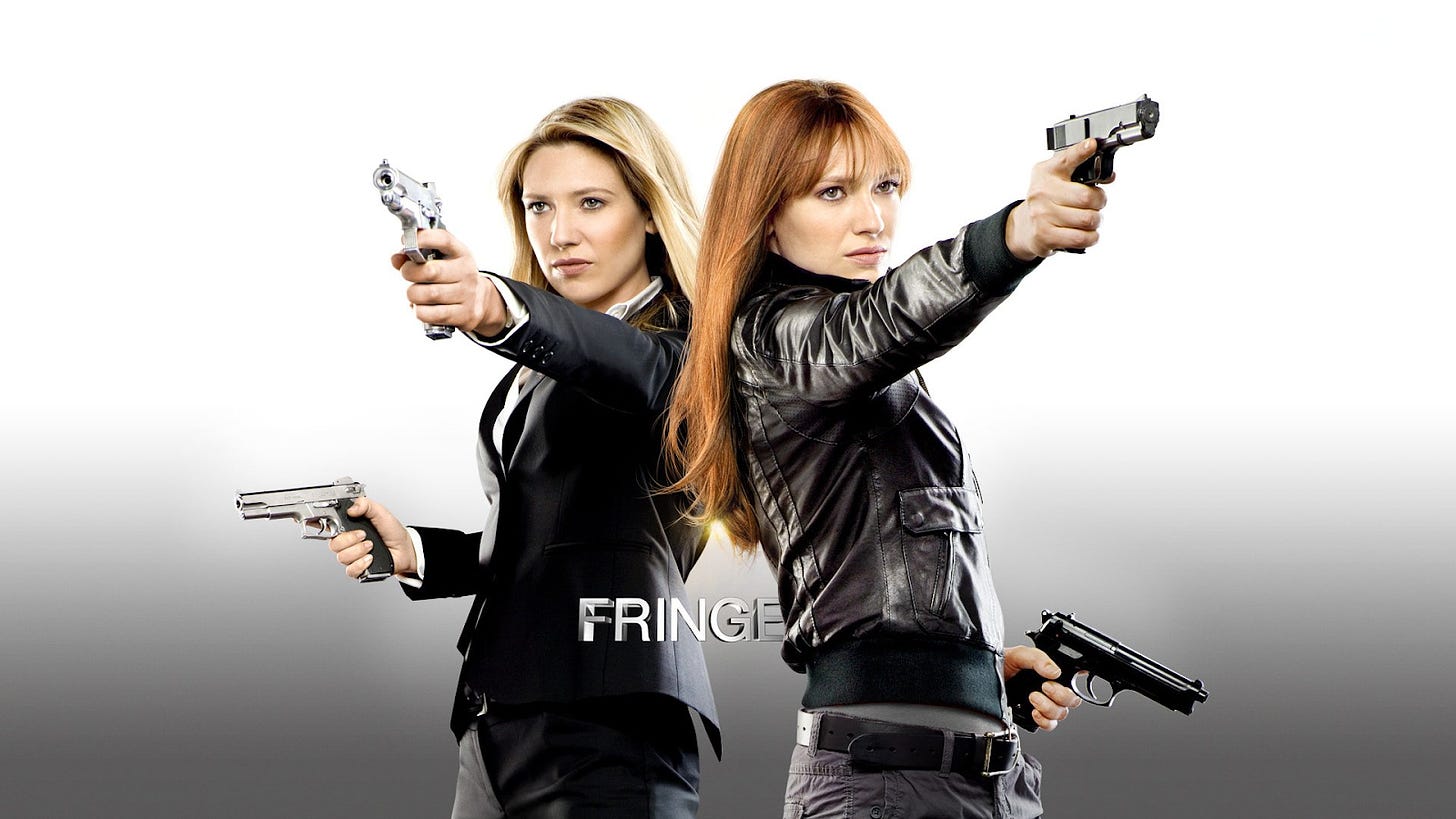
To be sure, some of my enjoyment of these characters is related to their existence within procedurals, a genre that frequently produces characters who are just doing their best. For me, this quality of earnest trying is what allows these characters to clinch a spot in the top tier of fictional heterosexuality, and I think also accounts for why a show like The West Wing is a delight to watch. (I would almost definitely hate most of those characters in real life, and yet I always root for them because they are trying so hard).
If all of this just sounds like an excuse to finally write about Fringe – well maybe it is. But I also just enjoy thinking about why we like the things we do, and why certain things touch us while others don’t. In fact, that question has inspired much of the writing I’ve done over the past several years, and has in many ways defined my identity as both a scholar and a fan. In this instance, this investigation focused on my own characterizations of the media in my life, but I would love to hear about yours, too. If there are any qualities you would include in your own definition of “exceptional heterosexuals,” please let me know in the comments. As always, my media consumption is skewed by the exorbitant number of crime procedurals I’ve watched in my life, but I’m always open to hearing about your passions, too. Mulder and Scully 4ever.
Welcome to this week’s dispatch from the lesbian internet.
First, an update about something I spoke of last week. You may recall that child entertainment superstar JoJo Siwa came out last week, and the response was, for the most part, pretty positive. Unfortunately, just days after her coming-out announcement, she was swatted at her home in LA. Swatting, if you didn’t know is when you call the police on someone, providing false information about a crime being committed at their address. This causes a heavily-armed SWAT team to descend unannounced upon their house, resulting in a lot of terror and sometimes even death. Siwa contends that it was probably the paparazzi that made the call because there were paparazzi waiting outside her house after the SWAT team forced her outside. Thankfully, no one was hurt and Siwa seems remarkably calm about the incident in the video below where she explains what happened. But regardless, this is a horrible thing to happen to someone, and if anyone tries to hurt Siwa again they will have to catch these hands.

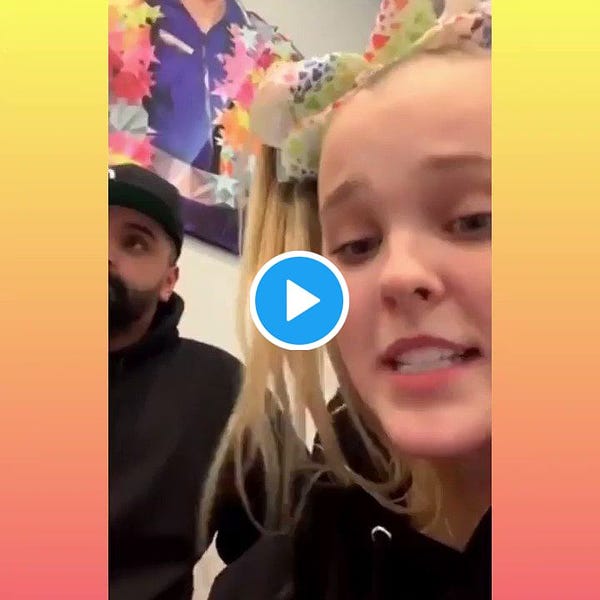
Next, it has come to my attention that Nigeria’s first-ever lesbian movie, called Ìfé, is available to rent online. The film follows a young lesbian named Ìfé as she embarks on a several-day-long date with another woman. You can check out the film here.
Four episodes of a new Israeli Apple TV+ series called Losing Alice have been released, and it is so far an intriguing ride. The series is a sort of reverse Hitchcockian, Basic Instinct-Esque, twisted ménage à trois that follows Alice, a film director, and the perverse relationship she develops with a young screenwriter with potentially nefarious intentions. Check it out if that sounds interesting to you, but trigger warning for assault in Episode 4.
[Spoilers in the links] In other TV news, the ghosts of our favorite lesbian Marvel moms have resurfaced in this week’s Wandavision (click this link if you want to be upset), and the Disney+ series remains an intriguing experiment with televisual form.
In music news, singer Rebecca Black (of “Friday” fame) has released her first explicitly gay song/music video since coming out last spring. I have remained peripherally aware of her for several years because she is friends with several of the LA lesbian YouTubers , so it was not surprising to me when she came out. Here is the video for “Girlfriend.”
Lastly, a bit of sad news – legendary musician and producer SOPHIE died on Saturday. She was known for her experimental take on electronic music and bubblegum pop and was a pioneer in PC music and Avant-guard pop. (You can check out every song she ever produced here). As Rose Dommu put it on Twitter, “She hacked the matrix. She made music that sounded like how being trans feels.” If you haven’t heard her music, check out this song for starters.
That’s all for this week, folks. Considering my earlier discussion of The X-Files, I will leave you with this blessed image of Gillian Anderson and Megan Fox, the sapphic power of which is unmatched. Until next week!


